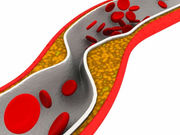Medication Adherence Up With Refill Synchronization Model
Improvement in medication-taking behavior; cost savings over one year for HTN, DM, hyperlipidemia
Excess Weight Increases Costs Across Health Care Settings
Percentage increases in costs associated with obesity were highest for medications, higher for women
Drug-Resistant Bacteria Seen in Many Nursing Home Residents
More infection-prevention education and policies are needed, researcher says
Recreational Cannabis Negatively Affects Gums When Used Often
People who use it frequently twice as likely to have periodontal disease, researchers say
Gender Minority Adults More Likely to Report Poor Health
Public health professionals need to pay attention to this vulnerable population, researchers say
Self-Pay for Obesity Treatment Doesn’t Improve Weight Loss
Weight loss doesn't differ for employees with insurance, nonemployees who pay out of pocket
~4 Percent of U.S. Population Has Food Allergy, Intolerance
Researchers find most common food allergen groups are shellfish, fruit or vegetable, dairy, and peanut
Evacetrapib Appears Futile in High-Risk Vascular Disease
No reduction in primary end point events, including death from cardiovascular causes, MI, stroke
Considerable Humanistic Impact for Chronic Spontaneous Urticaria
Two-thirds of patients with CSU report angioedema, which significantly affects health-related QoL
Late Teen Emotional Stability Inversely Tied to Mental Illness
With unique U-shaped association seen for bipolar disorder and social maturity



















